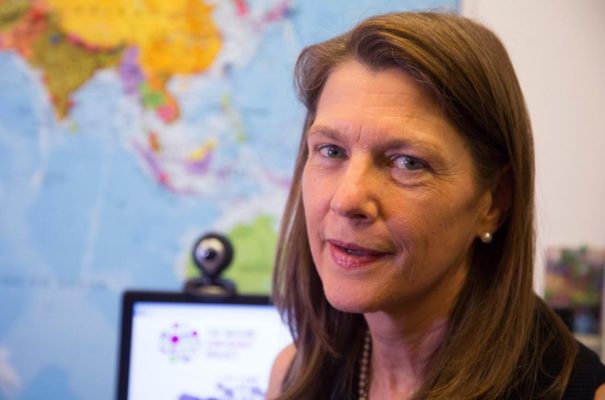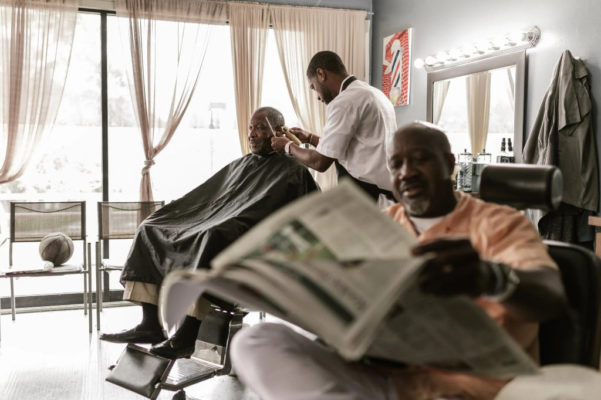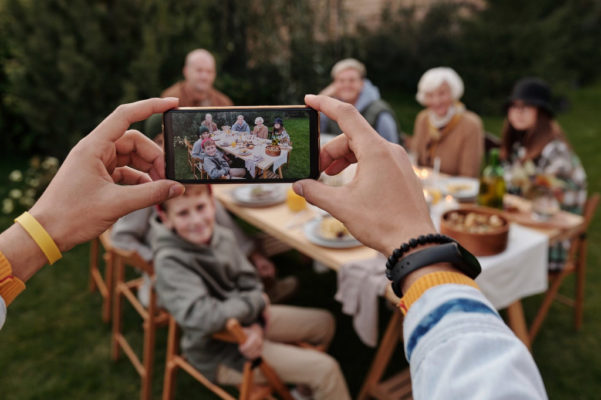Dr Heidi Larson, a leading expert in vaccine confidence was putting the finishing touches to Stuck ‒ her book about vaccine rumours ‒ when the COVID-19 pandemic began. It provided a wealth of insights on why people vaccinate (and why they don’t) and the difficulties that arise once false stories about vaccines take hold. The past two years have shaken up the vaccine landscape, but what has been learned about attitudes to vaccination?
We caught up with Dr Larson, Director of the Vaccine Confidence Project, to explore how the pandemic has recast vaccine acceptance. As health authorities get routine vaccination campaigns back on track and close gaps that emerged due to lockdowns, people’s views on vaccination have hardened, for better and worse. And, amid all the noise generated by online (and some offline) vaccine conversations, Dr Larson points to success stories showing the way towards more effective community-based immunisation campaigns.

How has the COVID-19 pandemic affected vaccine confidence?
The fallout is not yet clear: we don’t have data on vaccine confidence yet, but hope to share headline findings of EU vaccine confidence research by late April. We’re also just finishing an Africa-wide study and research for WHO Western Pacific.
However, the pandemic has had an impact on vaccine uptake globally, particularly when some vaccination programmes came to a sudden halt in 2020. The total doses of DTP3 [the combined diphtheria, tetanus and polio vaccine] given in April 2020 dropped 31%. For measles, the decline was about 30%.
That was mostly a problem of access. Countries and regions have recovered unevenly, depending on how strong their underlying health system was before the pandemic. There is, however, a real risk that vaccine questioning has exploded and escalated.
Is this growth in vaccine hesitancy limited to COVID-19 vaccines?
It has been about COVID-19 vaccines, but a lot of people have become exposed to anti-vaccine ideas for the first time during the pandemic. We’ve done a controlled trial in 8,000 people in the US and UK testing how exposure to vaccine misinformation shapes willingness to have the vaccine. There was a 6% drop after being exposed to the five most frequently circulating pieces of vaccine misinformation circulating on social media.
Your response to misinformation depends on how susceptible you were in advance of exposure to false information. However, the risk is that people who are protesting about mandates or who have a perception that decisions are made globally in a top-down manner, might become embroiled in anti-vaccine ideas.

Why has vaccination become so political and polarised in some countries?
One reason, even with routine vaccination, is because everyone has to take it and data on uptake is collected by governments and shared with global agencies. If you have anxieties about being counted or you disagree with political leadership; or if you have anxieties about sterilisation ‒ as some Muslim people in India do ‒ vaccination takes on a new dimension.
Some people view it as a command and control issue. If you don’t trust the government, you won’t want to be subject to their advice or mandates of any kind. So, it’s not surprising that people who feel this way are uneasy about vaccination for a variety of reasons, although the extent of it has been surprising.
How damaging might this be for routine immunisation against measles, HPV and flu?
People don’t mix up the COVID-19 vaccine and other vaccines. But, if you’ve had a bad experience with one vaccine or you lose trust in the government, it can have a knock on effect. We’ve seen this in the Philippines where an issue with dengue vaccination affected other vaccines; and in Denmark where a drop in HPV vaccination was followed by a drop in measles vaccination. People are not confusing these vaccines per se, but they have lost trust in the system.
That’s the concern now. In searching for information on COVID-19 vaccines, more people have been exposed to negative ideas about vaccines more broadly. And we’ve seen vaccine critics become increasingly sophisticated. They frame vaccination as a question of freedom and choice. And they have learned how to navigate online restrictions or they have moved to less restricted spaces such as Telegram [an online social network] or they have gone offline.

What has been learned in terms of how to improve vaccine uptake?
The success stories from the COVID-19 vaccine campaigns have been hyperlocal. The more local, more relevant and more familiar the situation, the better. In the US, black populations saw amazing reductions in vaccine hesitancy because they formed coalitions of black doctors who went into communities. They worked with barbershops and it was really striking how numbers went up. Similar initiatives with farmers and native Americans delivered results ‒ as did campaigns in Bangladeshis in London.
This is something I hope we don’t lose as the focus returns to routine immunisation: there are new players who have been involved in COVID-19 vaccination and are a real asset. It has potential to help address adolescents, adults, pregnant women and others.
How might people who are still not vaccinated or not boosted be convinced to change their minds?
Dr Danielle Ofri, a New York-based physician, has spoken about the ‘unique obstinacy’ doctors are encountering when they try to engage people in conversations about COVID-19 vaccination. Some people just don’t want to talk about it; it’s a flat ‘No’.
From personal experience, I’ve heard everything from people complaining that COVID-19 policy is too top-down and too controlled, to anxieties about COVID passes and surveillance. It makes me think that a paper certificate, rather than a digital code on our phones, might address the objections some people raise.
The main lesson I take from campaigns to roll out COVID-19 vaccination is that the more local it is, the better. Vaccines should be offered in a local and familiar setting, by trusted people. Some older people have expressed discomfort with attending for vaccination in a stadium or a large tent. That’s a barrier that could be addressed.

Are there some positives in terms of greater awareness of vaccination and of life-course immunisation?
I think that’s where there will be more change; some good, some bad. The pandemic has certainly given a much broader population experience of vaccines, knowledge about epidemiology and lateral flow tests ‒ it has been a crash course in science. This is a potential asset as more people are aware of vaccines.
We should also continue to engage with all kinds of people. If there’s one thing we should take into the post-COVID world, let’s keep the relationships we have built outside the traditional, narrow vaccine community. The landscape has changed. We should change too.




